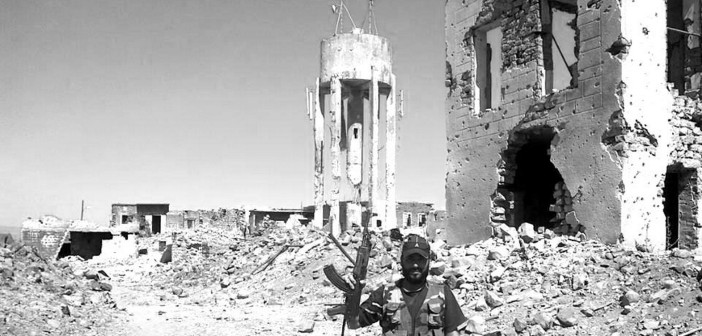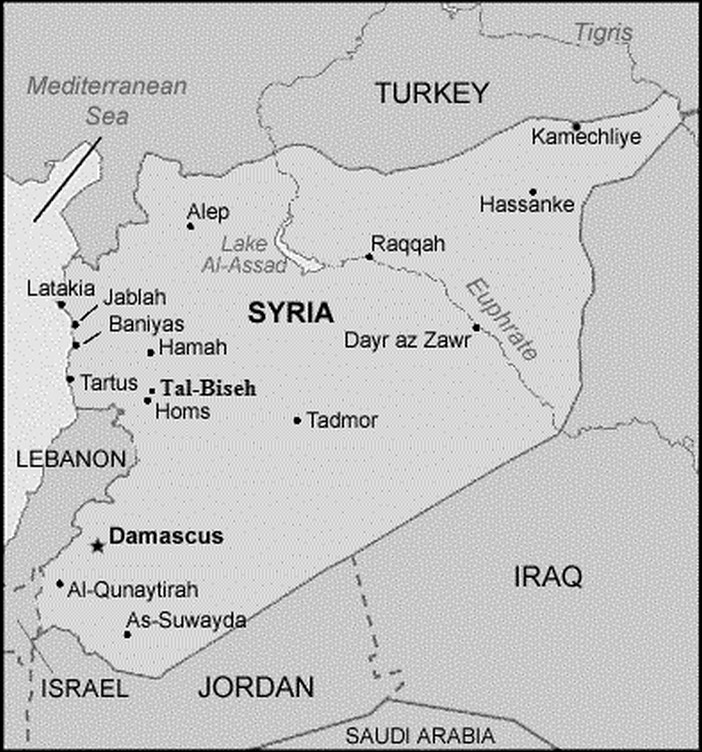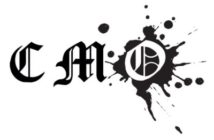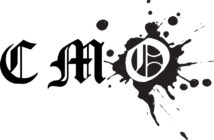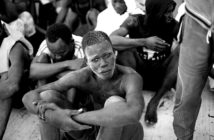A journey into war, inside a country economically and socially destroyed, where those who demanded democracy now fight, not only against the dictatorship of Bashar al-Assad, but also against hundreds of fanatic Islamist groups… For Pierre Piccinin da Prata, reporter for The Maghreb and Orient Courier, it is a return to the land, where he spent five months as a hostage of the al-Farouk Brigades, one of the numerous jihadist groups fighting in Syria. It is a new courageous departure, to again meet the revolution’s first militants, which he followed in 2011 on the misadventure of the Syrian spring. The first reportage of a series that will bring us deep… inside Syria.
A devastated land, deserted by the Western media, too risky for journalists who are targets for the bands of brigands who, under the uniform of rebellion, plunder and ransom people already bled by war but also prey forjihadist factions, sometimes rivals, who seized the land and confiscated the revolution,which the citizens organized through theFree Syrian Army…
A box with a lid, barely opened by some daring reporters, but suddenly closed again, one day, in the increasing indifference of the worldwide public opinion on Syria, which has almost disappeared entirely from television screens.
It took me several months, almost a year, before I returned to the perilous paths of the Syrian fields.
With the help of friends, those from the very beginnings of civil insurrection, I managed to enter Syria via circuitous routes, which are necessary to guarantee safety as much as possible, limiting the danger and risk of being spotted on such a short journey into this war-ridden country. None details about the road to enter Syria. Nothing about people who helped me. Not even about the dates of my journey… I have to keep silent.
It once again engulfed me, making me realise the extent of terror and unimaginable realities and stories that I am covering for The Maghreb and Orient Courier.
Why do I go back? Because it is improper to speak of suffering without having lived with those who endure it; because realities on the ground can only be known through experience and cannot be invented, nor developed in the comfort and safety of a newsroom.
Back in Syria, pursuing the trails of the actors of the democratic revolution; those people I had met in 2011 were enthusiasticand confident that victory was at hand.
I returned to the governorate of Homs a few months after the fall of the city in May. Thisshort journey revealed a perplexing reality.
I found Ammar, twenty-eight years old, studying computer science.
May 17, 2012, I left Damascus very early, by car. I went to Homs to film the largely destroyed rebel neighbourhoods. A few kilometres north of Homs, whilst I followed theroad to Hama, I saw a small town along the highway. Partly surrounded by the regular army; already ruined by artillery fire plan. I bypassed the checkpoints; I entered Tal-Biseh. The rebels stopped my car and welcomed me with open arms. There, I met Ammar for the first time.
Three years later, a touching reunion … and a face to face conversation without illusions…
“Pierre, my friend! I’m so happy that it has been possible for you to join us again… Situation, here, in Tal-Biseh, is so bad… I mean… The humanitarian situation…There is a lack of food; it is a big problem. The population is now about 60.000 people and more or less half of them are refugees… And…”
Ammar is very moved. I am too. But we only have the one day to speak and to try to understand the things that have happened there. This evening already I will cross the border of war again, back into more silent parts. I cannot remain longer. The risk has become too big. The jihadists are everywhere – even here.
“I miss you so much, my friend… I remember when you came in our city during the regime’s attack… At first, I was afraid of you; I thought you were an agent of the regime, because of you enter the city succeeding to avoid the checkpoints of the army… O, God! I was so sad, Pierre, when I learned that you were kidnapped by Islamists in al-Qusseir. These men are a problem… For us too… But, Pierre, we cannot speak here…”
My friend drags me into a little side street, filled with rubble. The bombardments are routine. “We have to hide, Pierre!”, he tells me and takes me by my arm.“Here, it is not safe anymore for western people; not because of shelling, not only because of that… But because of the radicals… You know, we are not scared of the regime, but the radical groups…I mean, the Islamists…Every groups are in this place.”
We cross the little patio of a house and Ammar invites me into a big saloon ; I remember the place : it is here that I had shared tea with young militias of the Free Syrian Army of Tal-Biseh two years ago. Some fighters are seat, on dusty carpets covering the ground. The place is the same; but everything is different … and I do not recognise anyone … Ammar explains to me that all those I had met in 2012 are dead.
“The air force attacks the civilians every day. Life has stopped; people become depressed, not only from the international community’s abandonment but also because of the support granted to the regime indirectly by all countries.On the other hand, the situation in ar-Rastan is worse than in Tal-Biseh.”
Ar-Rastan is another little town, a few kilometers further North on the road direction Hama. I had been stopped there by the regular Syrian army, in 2012, after having left Ammar and his friends. The government troops already were besieging the city. After a control of my passport, which lasted more than one hour – interrupted by heavy machinegun fire from the rebel side – the soldiers had let me go.
I ask Ammar how the reconquest of Homs has been experienced (the government took back this city –a symbol of the revolution- last May).
“We cannot say that Bashar had a victory there! Even if the regime has all the weapons he wants, the government, during two years,was not able to control Homs city; and so many Assad soldiers were killed… The revolutionaries decided themselves to go out of Homs. By day. Not by night. And after a truce with the regime. So, the Syrian people saw that event as an evidence of the regime’s weakness. By the way, they would not march out of the city with the availability of food.”
“What about the Free Syrian Army, today, in the Homs governorate? Do you think that the military situation can be reversed and control be regained over Homs and the zones now controlled by the government? And what about al-Qousseyr?”
“You know, my friend… The rebels are not united. Because FSA is not supported by anybody.
They don’t have weapons any more. So, its fighters get depressed and move for other groups… Why was FSA not supported!? Because western governments wanted to get its leaders weak and discredited. A lot of times, the FSA’s leaders have announced about something, according to the supporters promises. But, at the end, they afford nothing. Consequently, the fighters do no longer trust their‘miserable’ leaders…
So, some of the leaders of the FSA make their own law; they do what they want… FSA… Now, different groups control the city… Money has corrupted the revolution… and many groups fight each other.
And the radical groups have corrupted Islam…
Western governments are responsible for our situation, the defeats and the increase of Islamist groups.”
“I know… I remember when I was in Aleppo… Everybody asked me why Europe didn’t help them… It is a shame… I’m so sorry for the attitude of my government...”
“You will ever be welcome, Pierre. The problem, it is your government. Not you.
I know you like us! You like the Syrian people…
Of course, we hoped for a better attitude from Europe. But it is obvious that it could not do anything without the approval of America; it is possible to say that its policies are designed by the American hand, indirectly.
America represents hypocrisy. The Syrian people no longer wait for the American part. And even when the Syrian revolution was 100% purity, united and empty from the radical groups, America was hypocrite, temporizing and giving promises until the long time that bring troubles.
My people see that America is supporting Bashar’s side. Not completely, but they don’t want to destroy him.
The Russian veto, in the Security Council of UN is a game and America accepts the game.”
“What are these Islamist groups fighting for here, in Homs governorate?”
“Mainly, al-Ansar, Ahrar as-Sham and Jabhet al-Nosra [al-Qaeda in Syria]…But, in addition, the radical group of the Islamic State, ‘Daesh’.
The majority of Islamist soldiers are simple people. They joined Islamist groups because of their weapons availability. These groups are moderated, if their leadership is Syrian, even the katiba of Jabhet al-Nosra; not always, but…
But they are so radical when they are foreigners, like Daesh. The problem, with Daesh, is that their leaders do not belong to the Syrian community’s habits, its traditions and its religious point of view. And they are doing things which help the regime of Bashar and destroy the revolution.
We noticed often, here, in Tal-Biseh and in ar-Rastan, that the Free Syrian Army is attacked by the air forces, many times, when the FSA fight Daesh… Yes! Yes! You can believe me! Bashar military planes attacked the FSA during the battles between our fighters and Daesh! But they never attack Daesh. Why!? I don’t know who are these men, Daesh, and who support them…
The Free Army has arrested some Daesh’s soldiers; and they found out that they are agents working for Iran’s government! ”
“What did they find? How can they prove it?”
“On the arm of one of them, they found a tattoo; it was written ‘O, Hossein’… You know Hossein? He was against the successor of the Prophet; Shi’a always call for Hossein, instead of God. This man was not a Sunni; do you understand? He was not a Sunni!”
“I see… The situation looks very bad way for your revolution…”
“We do not know the future of the Syrian revolution, but we know that the people need to be represented, with democracy, with justice, and to live peacefully and freely. It is impossible to live with the existence of Bashar and his regime.”
“What will you do, now?”
“I prefer to leave my country, because I cannot stand in front of the massacres committed here by the regime and the new dictatorship of the radical groups, the Islamists. They want to impose their way of live. I cannot stay here… I’m out of patience.”
The sun will soon set, the militias of the FSA who have guided me here want to head off again – we will need to part ways again.
But Ammar wants to show me something; his cousin, Ahmad, has joined us whilst we were talking. He is fighting at Um Sharshoo. It is only about five or six kilometres away from where we stand.
“It is a very important place; you have to see it: it is a hill, a strategic place. From the high place of Um Sharshoo, you can control the main road between Homs and Tartus, and between Homs and Hama.”
Ammar’s cousin insists: “I want to show you my village. Plesae, come with us! Just half an hour…”
Ammar exits the house first – the way is clear. Accompanied by Ahmad and my escort, we climb into a pickup, which has suffered the war; and we head West, leaving behind us a thick cloud of white dust on a road burned by the sun, which blinds us.
Um Sharshoo: a stunning sight; nothing is left of Ahmad’s village. But since a long time such view is nothing special, in Syria.
With the blue sky in the background, the white concrete remains cling on to the horizon; the dust has covered and unified everything. There is no wind. Even at this late hour of the afternoon, the sun hits us; and the silence is heavy – no one lives here anymore.
Ahmad wants me to take a picture of him in front of the ruins of his house. He raises his kalachnikov, as a sign of victory.
And then, we wander across the devastated streets for a few minutes.
Ahmad explains to me, that the place has been captured by the army, only a few weeks back. Since then, about 50 rockets have hit Um Sharshoo and everything has been destroyed.
It was a mainly Christian village, he tells me. The regime had asked the Christians to help the army to fight against the rebellion, but they had refused to participate or to take a side. Also, they had been chased from the village by Shi’a an Alawite brigades, which has set their camps in their place.
When the FSA attacked, it lost many men, more than fifty and many were wounded – nearly twice the number of dead, mainly due to the landmines, which the government army had spread throughout the area. The majority of them are now gone. Generally the deaths are counted, but the casualties of the Syrian conflict are often forgotten: the wounded, the mutilated, the traumatised people…
The time however is limited. My escort does not leave the choice : I need to leave.
It is the time of saying goodbye. So quickly reunited, as quickly separated again. I will cross the border a little later, in a few hours, tonight. Ammar will stay a prisoner of hell; when will I be able to see him again, take him into my arms, speak again with him, share some bread, stuffed aubergines, prepared by his mother, and a glass of tea with him? He still has so many things to tell me…
“Please, Pierre! It is very important! Don’t publish any photo of me…”
“Don’t worry, Ammar. I want you safe! I am so sorry, not to be able to make something to help you…”
“Don’t be sorry, my friend! Your presence, here, it is so huge for us! You know…
Our biggest obsession, it is to sink into forgetfulness…
And into indifference.”

